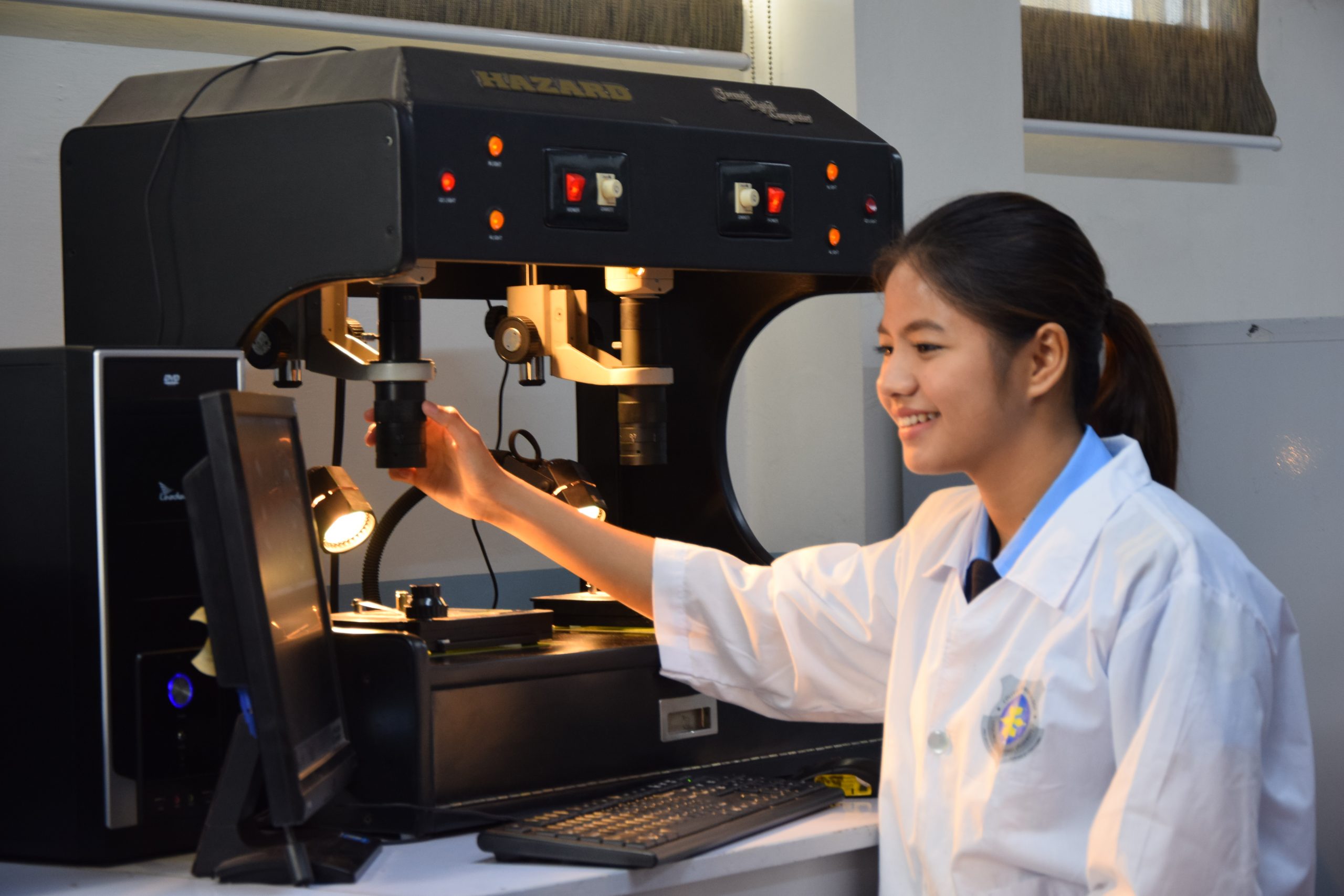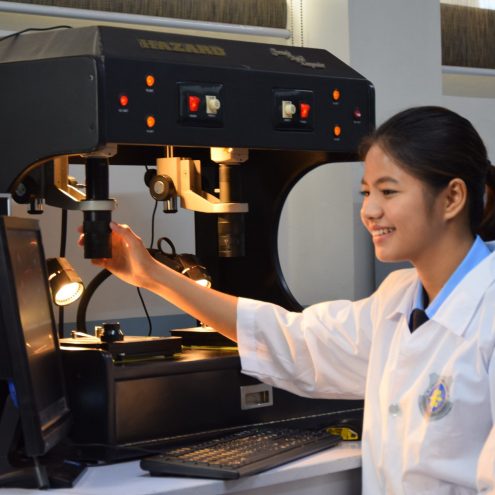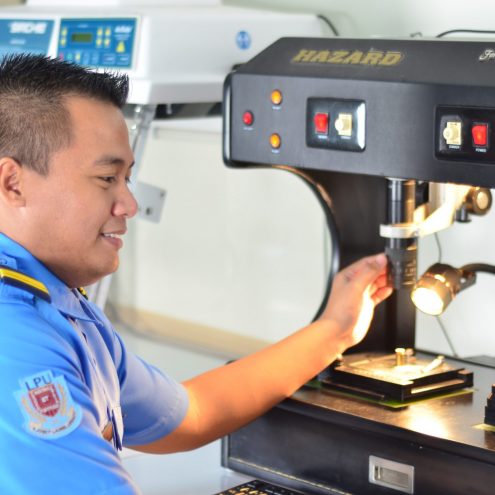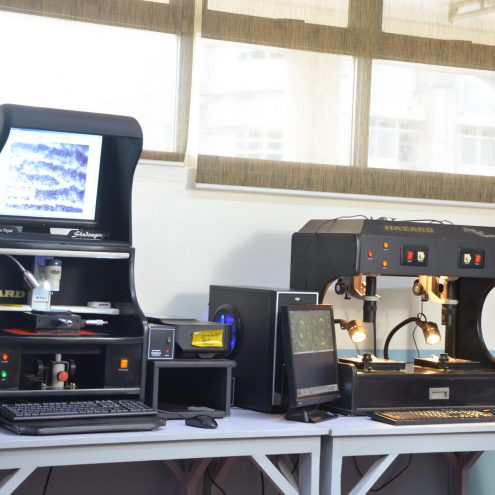Criminal Justice is a discipline that aims to preserve peace and keep order in a free society. As the trends of criminality today flow like how our technology is upgraded, it is imperative that our criminal justice enforcers are equipped with knowledge and skills in forensic investigation. From the identification and collection of evidence until its preservation and examination, and presentation to the court of law shall be observed. Bachelor of Forensic Science, an interdisciplinary program that combines a strong foundation of natural and social sciences and extensive laboratory and field experience answers the practical necessity in this complexity of today’s investigative challenges.
Bachelor of
Forensic Science
Download Curriculum
The complete program curriculum for Bachelor of Forensic Science
EMPLOYMENT OPPORTUNITIES
- Preparatory for Medical Course
- Preparatory for Law
- Law Enforcement (NBI, PNP Crim Lab, SOCO)
- Academician
- Private Forensic Specialist
LEVEL OUTCOMES
Three (3) to five (5) years after graduation, alumni of Bachelor of Forensic Science shall have:
- Performed the functions included in careers of scientific crime detection, law enforcement, forensic science education, research, analysis, and evaluation of forensic evidence in the court of law;
- Achieved position demonstrating competence, justice, and adherence to ethical standards;
- Engaged in lifelong learning through the pursuit of continuing and advanced studies, scientific researches, training, and specialized courses.

At the end of the program, Forensic Science students are expected to:
- Apply the concepts and principles in criminal jurisprudence to forensic science, crime detection, and evidence evaluation and analysis;
- Adhere to professional, ethical, and legal responsibilities of a forensic examiner
- Demonstrate analytical skills in crime detection, evidence evaluation, and profiling of crimes, victims, and criminals;
- Use conventional and modernized investigative tools necessary in the practice of profession;
- Analyze security, social and contemporary issues in the field of Forensic science.
- Recognize need to engage in lifelong learning and continuing professional development;
- Perform combat skills within legal limits;
- Demonstrate leadership and collaborative skills to function in a team or organization.

- Program Educational Objectives (PEO)
-
Three (3) to five (5) years after graduation, alumni of Bachelor of Forensic Science shall have:
- Performed the functions included in careers of scientific crime detection, law enforcement, forensic science education, research, analysis, and evaluation of forensic evidence in the court of law;
- Achieved position demonstrating competence, justice, and adherence to ethical standards;
- Engaged in lifelong learning through the pursuit of continuing and advanced studies, scientific researches, training, and specialized courses.

- Student Outcomes (SO)
-
At the end of the program, Forensic Science students are expected to:
- Apply the concepts and principles in criminal jurisprudence to forensic science, crime detection, and evidence evaluation and analysis;
- Adhere to professional, ethical, and legal responsibilities of a forensic examiner
- Demonstrate analytical skills in crime detection, evidence evaluation, and profiling of crimes, victims, and criminals;
- Use conventional and modernized investigative tools necessary in the practice of profession;
- Analyze security, social and contemporary issues in the field of Forensic science.
- Recognize need to engage in lifelong learning and continuing professional development;
- Perform combat skills within legal limits;
- Demonstrate leadership and collaborative skills to function in a team or organization.

TALK TO US TODAY!
Send us your inquiries and we would be glad to answer them.




